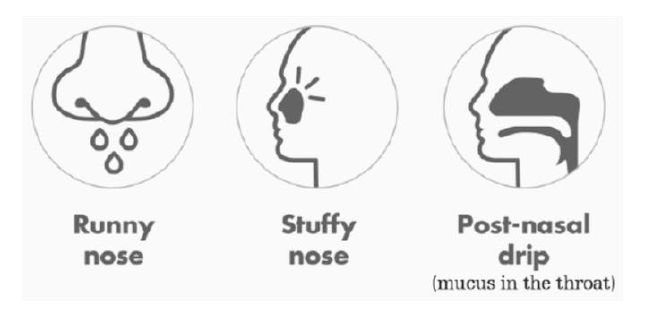Cryotherapy Posterior Nasal Nerve Neurectomy (CPNN)
This page gives you information about the surgical treatment for Cryotherapy Posterior Nasal Nerve Neurectomy (CPNN). It also explains the benefits of having the procedure and risks involved.
Within the PDF below, see Figure 1: Posterior nasal nerve
What is CPNN?
CPNN is a surgical treatment developed to help with allergic and non-allergic inflammation of the nasal lining, such as chronic nasal blockage, congestion, runny nose and the drip of nasal secretions to the back of the throat.
What does the surgery involve?
CPNN involves the freezing of the posterior nasal nerve (in both nasal cavities). The posterior nasal nerve is normally responsible for regulating blood flow to the nasal lining and for mucus secretion. The treatment will help relieve the symptoms of the production of excessive nasal secretions and issues of reduced nasal airflow. In other words, the surgery will provide relief from a runny and a stuffy nose.
What happens during the procedure?
A local anaesthetic is applied to the nose to reduce any discomfort during the procedure.
A thin flexible endoscope (a narrow tube with a camera on the end) is inserted, in turn, to each nostril so that the back of the nasal cavities can be seen.
At the location of the posterior nasal nerves, a controlled freeze is delivered by a cryoprobe (a long pointed surgical instrument).
You may feel some pressure, a cooling sensation or sense a hissing sound during the freeze application.
The procedure will take about 30 minutes to complete.
You will be able to go home on the day of the procedure.
Within the PDF below, see Figure 2: Placement of cryotherapy probe
Benefits of CPNN
Chronic nasal congestion and a runny nose can decrease your quality of life. These conditions are usually treated with medication such as nasal sprays and tablets which need to be used long-term. When the medication is no longer able to provide any satisfactory relief, CPNN offers an alternative option to the management of these symptoms.
Studies of this procedure have proved to be a safe and effective.
What are the risks?
As with all surgical procedures, there are some risks associated with CPNN. These include bleeding, infection, damage to the surrounding tissue, changes in sensation or taste. However, the risks are low.
Evidence from recent studies show that most of the patients treated, experience only minimal discomfort and usually recovered quickly.
What to expect after the procedure
As already mentioned, you may experience mild discomfort, swelling and congestion after the CPNN treatment. These symptoms typically last only a few days and can be managed with simple pain relief, such as paracetamol (please follow the instructions in the packet) and saline nasal douches to keep the nasal cavities clean.
If the symptoms are more prolonged, you should contact your GP for advice.
It is recommended that you should not blow your nose for one week after the CPNN in order to allow for healing of the nasal lining. The improvement of symptoms will be noticeable between 1 to 6 weeks and can last for a year or more. If necessary, CPNN procedure can be repeated in the future.
When to seek medical advice after having CPNN treatment
There are circumstances when it is advisable to seek medical advice. If you experience severe pain or bleeding, signs of infection (fever, redness, discharge), persistent stuffy or runny nose, and/or changes in your vision, please contact the ENT department. The number is at the end of this page.
Other adverse effects include some numbness or alteration of sensation in your face or mouth.
Some numbness or swelling in the nose can be expected after the procedure.
Contact information
If you have any questions or concerns about CPNN, it is important that you discuss these with your surgeon before going ahead with the treatment. Please contact your consultant’s secretary via the hospital switchboard.
Gloucestershire Hospitals Switchboard
Tel: 0300 422 2222
When prompted, ask for the operator then for your consultant’s secretary.
ENT Department
Tel: 0300 422 8564
Monday to Friday, 9:00am to 5:00pm
Out of hours, please call NHS 111 for advice.
